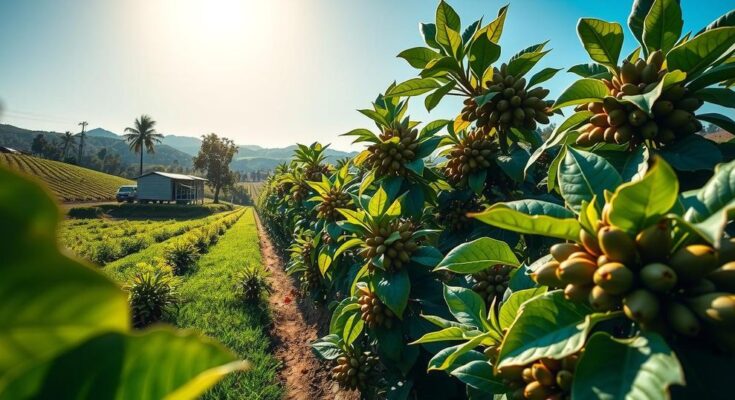Sam Mednick of the Associated Press uncovered an initiative involving a climate-resistant coffee bean in South Sudan that could enhance farmers’ livelihoods. Despite facing significant challenges, her comprehensive coverage through various media formats provided a fresh perspective on the region’s potential. The story attracted notable interest, highlighting the economic opportunities presented by excelsa coffee.
South Sudan faces numerous challenges, as reported extensively by West Africa correspondent Sam Mednick. During a reporting trip last year, she discovered a remarkable initiative featuring a rare, climate-resistant coffee bean, which could significantly enhance the lives of local farmers. This initiative provides a promising perspective on the country away from its usual crises.
The story required meticulous planning from Mednick and photographer Brian Inganga, who coordinated their schedules and secured travel arrangements for a UN flight. In the days leading to their departure, an outbreak of violence posed additional risks; nevertheless, they succeeded in reaching the coffee plantation, where Mednick captured video footage.
Their comprehensive story—encompassing text, photographs, and video clips along with an Instagram reel—garnered widespread attention and even ignited discussions on platforms like Reddit. While other publications had noted the climate resilience of excelsa coffee, none had examined its economic implications for the farmers. The AP’s exclusive report presented a distinct narrative on sustainability that stood out in the media landscape.
In summary, Sam Mednick’s investigation into climate-resistant coffee in South Sudan highlights a unique and promising agricultural initiative amid ongoing regional challenges. The collaboration with Brian Inganga resulted in a multifaceted story that not only depicted the potential of excelsa coffee for improving farmer livelihoods but also initiated broader conversations about sustainability in the region. This coverage exemplifies the power of journalism in bringing innovative agricultural stories to light.
Original Source: www.ap.org




